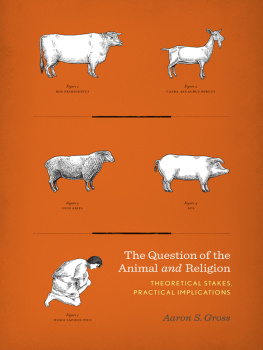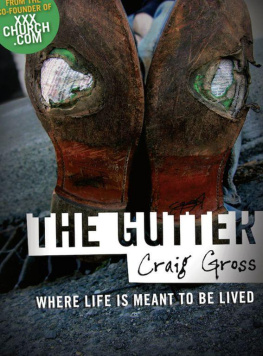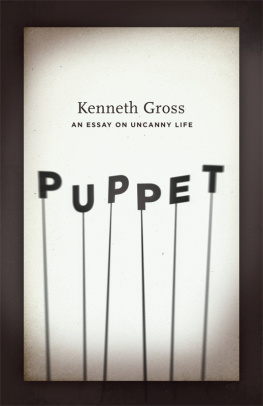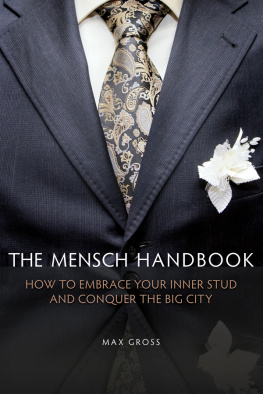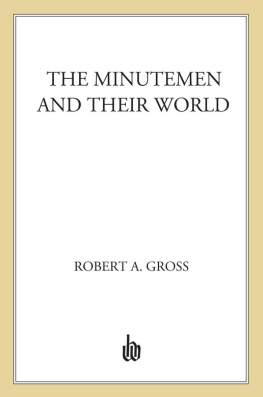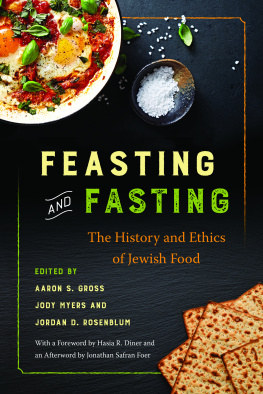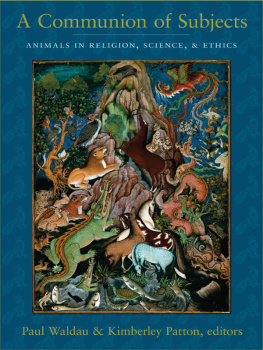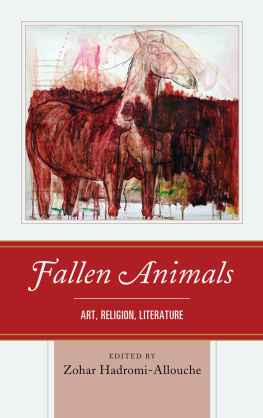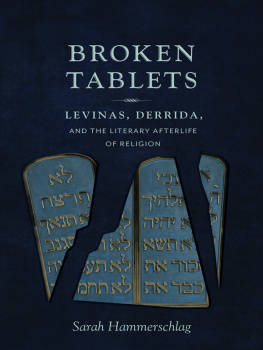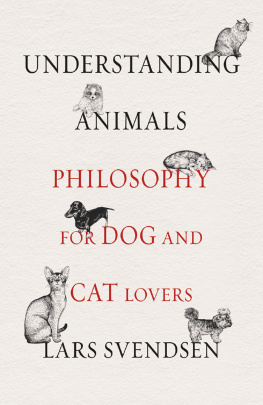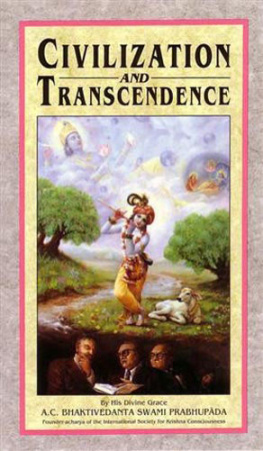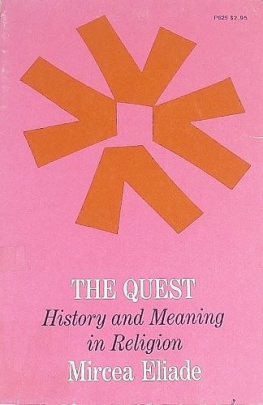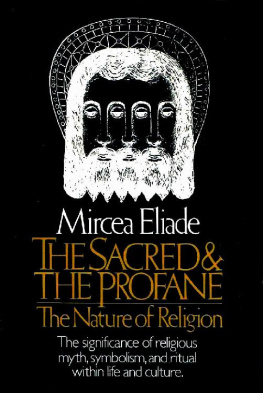THE QUESTION OF THE ANIMAL AND RELIGION
The Question of the Animal and Religion
THEORETICAL STAKES, PRACTICAL IMPLICATIONS
Aaron S. Gross
COLUMBIA UNIVERSITY PRESS NEW YORK
COLUMBIA UNIVERSITY PRESS
Publishers Since 1893
New York Chichester, West Sussex
cup.columbia.edu
Copyright 2015 Columbia University Press
All rights reserved
E-ISBN 978-0-231-53837-4
Library of Congress Cataloging-in-Publication Data
Gross, Aaron.
The question of the animal and religion: theoretical stakes, practical implications/Aaron Gross.
pages cm
Includes bibliographical references and index.
ISBN 978-0-231-16750-5 (cloth: alk. paper) ISBN 978-0-231-16751-2 (pbk.: alk. paper) ISBN 978-0-231-53837-4 (e-book)
1. AnimalsReligious aspects. 2. Meat animalsReligious aspects. I. Title.
BL439.G76 2014
205.693dc23
2014014716
A Columbia University Press E-book.
CUP would be pleased to hear about your reading experience with this e-book at .
References to Web sites (URLs) were accurate at the time of writing. Neither the author nor Columbia University Press is responsible for URLs that may have expired or changed since the manuscript was prepared.
JACKET AND BOOK DESIGN BY VIN BANG
FOR MY PARENTS,
who taught me that rachamim is more than human.
Contents

This book is the product of a long intellectual journey, with core ideas that started marinating more than twenty years ago, and so I begin by thanking my earliest academic mentor, Harold Kasimow at Grinnell College, and my mentor during my masters work at Harvard Divinity School, Jon Levenson, for helping me fall in love with the study of Jewish traditions and leaving me space to find my own path. The individuals who have contributed more directly to this book along the way are too numerous to list in any comprehensive manner. Nonetheless, some individuals and institutions were especially noteworthy. The incredible support and encouragement I received from the Department of Religious Studies at the University of California Santa Barbara, especially my Ph.D. committeeBarbara Holdrege, Richard Hecht, and Elizabeth Webercannot be overstated; conversations about the question of the animal with Tom Carlson, Nathaniel Rich, Anne Taves, and Colleen Windham-Hughes at UCSB also shaped parts of the book. I was similarly fortunate that a Leverhulme fellowship allowed me to spend nine months at the Theology and Religious Studies department at the University of Chester in the UK, and the colleagues I met there, especially David Clough and Celia Deane-Drummond, provided tremendous insight and good coffee that were crucial to the completion of this book. Other important conversation partners while in the UK were David Grummet, Rachel Muers, Krithika Srinavasan, and Daniel Weiss. I am similarly grateful for the numerous opportunities to present early versions of chapters of this book through the auspices of the Animals and Religion Group of the American Academy of Religion, and the incredible group of scholars Ive had the privilege of working with through this program unit, especially David Aftandilian, Barbara Ambrose, Heather Eaton, Laura Hobgood-Oster, Kimberley Patton, and Paul Waldau. I similarly wish to thank the Society for Jewish Ethics, especially for affording opportunities for rigorous conversations about AgriProcessors with Geoffrey Claussen, Jonathan Crane, Elliot Dorff, Moses Pava, Julia Watts-Belser, and Jonathan Schofer among others. A special thanks to Tim Ingold for being willing to read and offer feedback on the chapter dedicated to his work, and to Devora Kimelman-Block, Joe Regenstein, and Philip Schein for reviewing particular sections. Finally, I am grateful to my home department of Theology and Religious Studies at the University of San Diego for their steadfast support for my study of animals and religion and this book project. And though he wont be able to appreciate it, Fletcher, my canine companion, and all the dogs and cats that have linked me intimately to the more than human world, thank you.

THE EVENT IN POSTVILLE
Although I did not know it at the time, this book began in 2004 when a bland manila envelope arrived at my home by overnight post, a rectangular bulge revealing its content as a VHS tape. By the time the slaughter footage arrived, I was anticipating something ugly, but, even as someone who had seen a great deal of undercover footage taken by animal advocates, I found the video unusually disturbing.
and the kill floor most of all, are strictly guarded from view and virtually invisible to the general public.
The violence documented on the video included workers systematically cutting and partially removing the esophagi and tracheas of cattle after shechitahthe biblical word for slaughter used today to designate the cutting of the animals neck required by kosher lawbut, in more than one out every five slaughters, before the animals lost consciousness. This is simply the most disturbing of a handful of procedures that were later deemed to be illegal under the one U.S. law that provides some modest legal protection for cows and pigs at the time of slaughter.
The practices depicted on the tape drew swift, strong, and diverse reactions from American Jewish and animal welfare communities, especially where these two communities overlapped in persons like myself. Much of what follows in this study is an attempt to interpret the intensity and meaning of the Jewish responses to the suffering depicted on the video, responses to animals.
These responses are significant not only because of what they reveal about Jewish self-understanding and ethics but because of what they reveal about us Americans and, in the end, all of us who call ourselves human, humano (Spanish), humain (French), Mensch (German), and so on. The events at Postville have a traceable pragmatic influence that lives on in USDA memos, a changed U.S. kosher cattle slaughter industry, and an energized Jewish food movement. But the deeper charge these events carried and that brought them into discussion far beyond the Jewish fold is not about kosher slaughter in particular but about religious slaughter in an age when farms and slaughterhouses have come to be managed like factories. In the end this religious slaughter of which I speak is not limited to, as usually thought, what kosher or halal slaughterhouses do, but arguably what happens in American slaughterhouses of all kinds as they help bring billions of animal bodies into three hundred million American bodies as food every year with hardly anyone seeing a single farmed animal die. While I will be primarily concerned with the specificity of the Jewish response to these events, the final implications of this discussion is about all of us who live in industrial and postindustrial societies where eating animals is commonplace.

